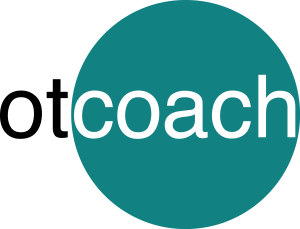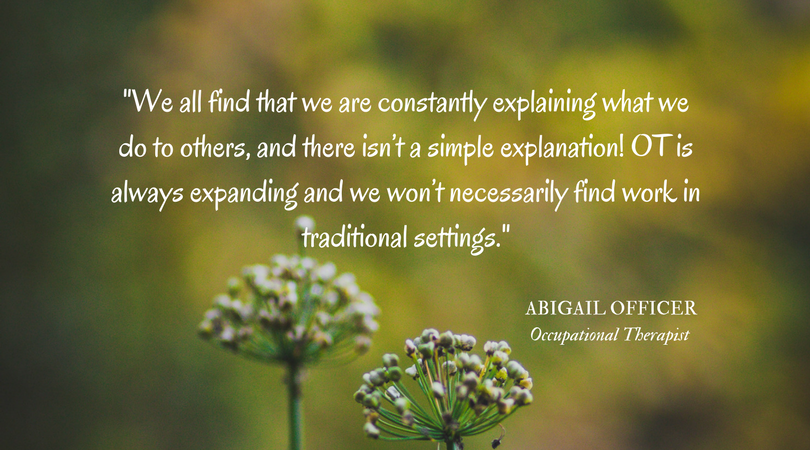As a newly qualified OT, I took on a huge challenge developing a brand-new role for an Occupational health, health and wellbeing service. The idea was to provide telephone based intervention for teachers who were absent from work with mental health and/or physical challenges. My intervention packs focus on stress, anxiety, fatigue management, lifestyle coaching, condition management and work-life balance. I felt as if I had been thrown into the deep end, trying to make sense of my learning from university and rummaging through reflections from past placements. I have now been in my job for almost a year and have seen some positive outcomes.
I perfected my ability to sell the profession to others, along with the skills and qualities we have to offer. We all find that we are constantly explaining what we do to others, and there isn’t a simple explanation! OT is always expanding and we won’t necessarily find work in traditional settings. Times are changing and we can adapt to this. People are choosing to receive support over the telephone as technology is more relied upon. I thought to myself ‘Will people really engage over the phone?’, ‘How can I be holistic if I can’t assess the person face to face?’. I believe a lot of what I do is coaching and am concerned I am already moving away from ‘real OT’ so early on in my career. There is scope to go into vocational rehabilitation and access people in their working environments but I feel additional training will be necessary.
Questions and request for help
I am looking to connect with other OTs working in a similar setting or have experience working with telephone interventions/condition management packages over the phone. How do others manage their OT identity when working in a non-traditional setting? Does anyone else experience role blurring and how is that managed?
Thank you, Abigail
Email: abigail.o@aplhealth.com


